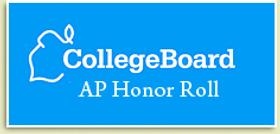For the 2024-25 school year, there is 1 public school serving 536 students in the neighborhood of Bellewood, Mobile, AL.
The top ranked public school in Bellewood is Forest Hill Elementary School. Overall testing rank is based on a school's combined math and reading proficiency test score ranking.
The neighborhood of Bellewood, Mobile, AL public school have an average math proficiency score of 4% (versus the Alabama public school average of 27%), and reading proficiency score of 23% (versus the 47% statewide average).
Minority enrollment is 98% of the student body (majority Black), which is more than the Alabama public school average of 48% (majority Black).
Best Public Schools in the neighborhood of Bellewood, Mobile, AL (2024-25)
School
(Math and Reading Proficiency)
(Math and Reading Proficiency)
Location
Grades
Students
Rank: #11.
Forest Hill Elementary School
Magnet School
(Math: 11% | Reading: 25%)
Rank:
Rank:
3/
Bottom 50%10
4501 Moffett Rd
Mobile, AL 36618
(251) 221-1270
Mobile, AL 36618
(251) 221-1270
Grades: PK-5
| 549 students
<麻豆果冻传媒 class='so-dt-title' id='faq'>Frequently Asked Questions
What are the top ranked public schools in the neighborhood of Bellewood, Mobile, AL?
The top ranked public schools in the neighborhood of Bellewood, Mobile, AL include Forest Hill Elementary School.
How many public schools are located in the neighborhood of Bellewood, Mobile?
1 public schools are located in the neighborhood of Bellewood, Mobile.
What is the racial composition of students in the neighborhood of Bellewood, Mobile?
the neighborhood of Bellewood, Mobile public schools minority enrollment is 98% of the student body (majority Black), which is more than the Alabama public schools average of 48% (majority Black).
麻豆果冻传媒 Articles

College Board AP District Honor Roll Includes Public Schools Coast to Coast
The article highlights the College Board's AP District Honor Roll, recognizing school districts across the U.S. for increasing AP course participation and improving exam scores. It discusses the criteria for selection, the benefits of AP programs, and the impact on college readiness and educational equity.

Knowledge is Power Program: A Strong Model for Public Schools
As many traditional public schools struggle to close the achievement gap, Knowledge is Power Program schools seem to have the right formula for helping poverty-stricken and minority students achieve success. In this article, we examine how KIPP schools are making their sThis piece explores the Knowledge is Power Program (KIPP), a network of charter schools known for its success in improving academic outcomes for underserved students. It outlines KIPP's educational philosophy, teaching methods, and the program's impact on student achievement and college readiness.

September 27, 2024
Understanding RubricsThis article explores the fundamental principles of rubrics in education, focusing on their role as assessment tools. It breaks down the key components of rubrics, including criteria, performance levels, and descriptors. The piece also delves into the two main types of rubrics - holistic and analytic - providing authoritative definitions and explaining their unique applications in educational settings.
